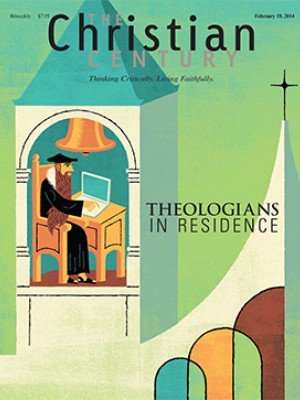Figuring out faith

When I talk with seminary or divinity school students, I’m impressed. They seem to know why they’re in seminary and what they believe. I enrolled in seminary in order to figure out what I believed. Yes, I’d grown up attending worship, Sunday school, youth fellowship and summer camp, and I was impressed with many of the ministers I met along the way. But I’d never given much thought to the content of the faith.
The first indication that there was something in religion that was worth thinking about came in a required college religion course taught by Charlie Spotts, a crusty old Evangelical and Reformed Church minister. Spotts had a reputation for pulling the rug out from under freshmen by introducing them to critical thinking about the Bible.
Read our latest issue or browse back issues.
He began by explaining that creation didn’t happen exactly the way Genesis tells it. Instead, life evolved over millions of years. When students shared their insights with their parents, the college president received letters demanding that the entire religion department be fired.
When my parents and my Presbyterian pastor assured me that Professor Spotts was right, I was intrigued, so I signed up for a course taught by a distinguished process theologian. But I didn’t understand a word of his lectures. I finally dropped the course and made a list of alternative vocations. Fortunately, other professors engaged my heart and mind and began the process of helping me figure out what I believed and whether it was important enough to give my life to it.
Joseph Sittler was one of those professors. Sittler taught introductory theology and was engaging, literate, eloquent and funny. His lectures were equal parts scripture, history and literature (Walt Whitman, T. S. Eliot). He also threw in the humor of life in Chicago’s Hyde Park neighborhood and the fortunes of the Chicago White Sox. The required text was Gustaf Aulen’s The Faith of the Christian Church.
Then there was James Nichols, a Presbyterian who helped me think about the Christian story in the context of world history.
Another professor, J. S. Whale, was particularly entertaining when he commented on American life from his British (Cambridge) perspective. I devoured Christian Doctrine, Whale’s book on the fundamental beliefs of Christianity. I got it down from the shelf recently and reread this key sentence: “All lectures on Christian doctrine are concerned from first to last with the reality, nature and purpose of the living God.”






